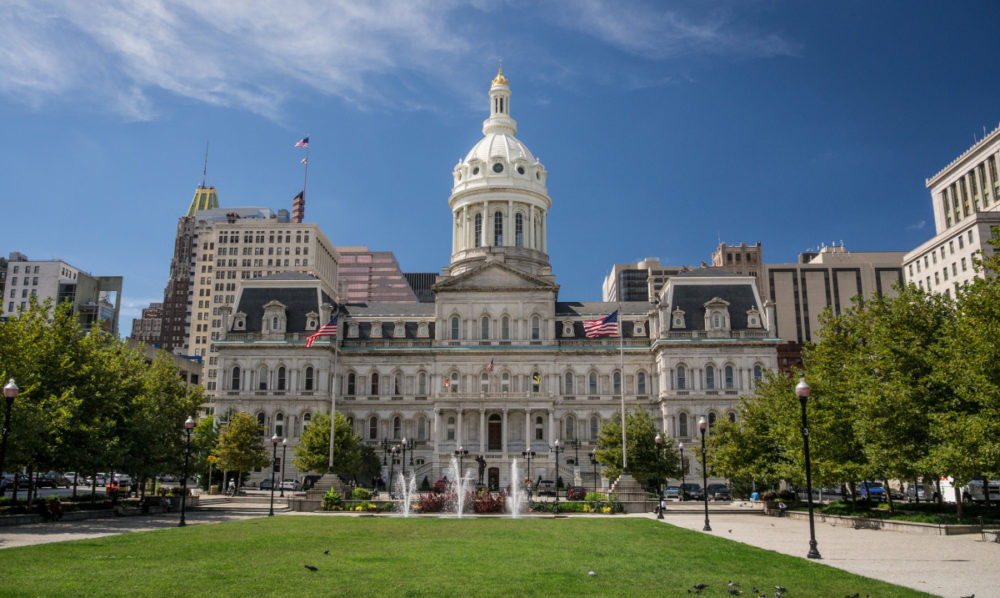To continue growing a community that’s already getting a lot of attention from politicians, it helps to engage on the issues.
Members of Baltimore’s tech scene are already active in the greater community, and many spoke about the need to turn more focus to the city’s decades-old inequalities with renewed urgency in the wake of the unrest that followed Freddie Gray’s funeral. To keep that energy going, one next step is to rally around those issues ahead of the April 26 Democratic primary
That’s why Technical.ly Baltimore polled local tech leaders and curated what they want of a future mayor. Then we distributed the resulting questionnaire to declared candidates.
On Wednesday, Jan. 27, we’ll get to hear the candidates address these issues at the Baltimore Mayoral Candidate Forum on Economic Opportunity and Innovation at Impact Hub Baltimore. Technical.ly Baltimore is partnering with several other organizations to host the event.
The questionnaire has been received by the campaigns of Sheila Dixon, Elizabeth Embry, Patrick Gutierrez, Joshua Harris, Nick Mosby, Catherine Pugh, Carl Stokes and David Warnock.
Here’s what we asked them to respond to. We’ll report back what they say.
- I recognize the importance to the future of Baltimore that the local tech community has, featuring entrepreneurs, technologists, innovators and their supporters.
- I support the need for supplementary educational opportunities in STEM, like robotics, advanced manufacturing and entrepreneurship for Baltimore school children to be better prepared for careers of the future.
- I support prioritizing computing centers and digital literacy training in the City of Baltimore budget for modern workforce development, leveraging the Enoch Pratt Free Library, Baltimore City Community College and other existing stakeholders to help develop a more inclusive and diverse innovation ecosystem.
- I support programs that aim to attract, retain and grow early stage businesses, like the Emerging Technology Centers, and its AccelerateBaltimore program, in addition to private-sector incubators like Betamore, the University of Maryland BioPark, the Johns Hopkins University FastForward, Impact Hub Baltimore and others.
- I support introducing an Open Data Executive Order that would establish the regular release and maintenance of high-value city data and the use of an open data advisory council for outside guidance on modern standards for ethics and efficiency.
- I support retaining the Chief Data Officer position as an internal advocate for open data, transparency and efficiency and facilitating the position’s collaboration with pre-existing government agencies to do the same.
- I support using Data.Baltimore.Gov to effectively share and distribute city data resources.
- I support the development, maintenance and use of APIs to distribute and leverage city data whenever possible, rather than static snapshot data sets. When necessary to provide static snapshot data sets, I support the delivery of city data and information in machine readable formats, like .XLS, .XML and .JSON.
- I support city procurement reform to enable the City of Baltimore to more efficiently, transparently and modernly acquire the best goods and services, including the use of open source software when appropriate and preferring locally-based firms.
- I support data-informed policy making, using programs like Baltimore CitiStat, OutcomeStat (and related departmental programs) to create an internal consumer ecosystem for the City’s open data activities and facilitate better governmental performance and efficiency.
- I support the role private investment, like venture capital, must play in growing local communities through social entrepreneurship and other civic-minded business growth.
- I support the retention of a Broadband Coordinator to solicit citizen and marketplace feedback on issues like broadband access, privatizing city conduit infrastructure and trends in “dig once” policies, in which high-speed internet infrastructure must be installed whenever relevant city streets are uncovered for other maintenance, like on public water and gas infrastructure.
- I support the use of body cameras for on-duty Baltimore city police officers.
- I support publicly engaging and responding to citizen feedback using social media, as consumer-orientated private companies do.
- I support the recommendations of current Mayor Stephanie Rawlings-Blake’s “A Connected City” task force, including establishing high-speed internet in city public schools and utilizing existing resources such as the city’s transportation conduit system to strengthen internet connectivity in the city.
Join our growing Slack community
Join 5,000 tech professionals and entrepreneurs in our community Slack today!
Donate to the Journalism Fund
Your support powers our independent journalism. Unlike most business-media outlets, we don’t have a paywall. Instead, we count on your personal and organizational contributions.

Maryland firms score $5M to manufacture everything from soup to nanofiber

National AI safety group and CHIPS for America at risk with latest Trump administration firings

How women can succeed in male-dominated trades like robotics, according to one worker who’s done it


